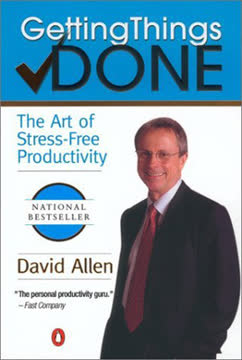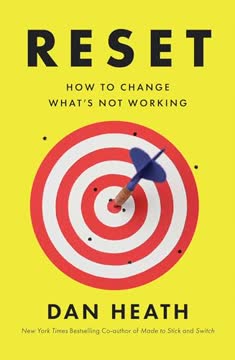Key Takeaways
1. Career derailment stems from fixable behavioral issues, not lack of talent.
Careers stall more from having the “wrong stuff” (e.g., being insensitive to others) than lacking the “right stuff” (e.g., not having strong analytical skills).
Beyond skills. The book challenges the conventional wisdom that career success hinges solely on skills and intelligence. While these are important, behavioral issues like poor interpersonal skills, inflexibility, and lack of strategic thinking are more likely to derail talented individuals. These "wrong stuff" factors often undermine the "right stuff" skills.
Derailment defined. Derailment occurs when a manager or executive, previously considered high-potential, is fired, demoted, or plateaus below their expected performance level. It's not simply about lacking skills, but about a mismatch between individual values and organizational needs, or an inability to adapt to changing circumstances.
Hope for improvement. The good news is that these behavioral issues are often fixable. By identifying and addressing these weaknesses, talented individuals can get their careers back on track and reach their full potential. The book provides practical strategies and real-life examples to guide this process.
2. Five archetypes embody common derailment patterns.
If your first reaction is “none of these characters is like me,” look past their specific characterizations and into their behavioral tendencies—chances are you will find a few gold nuggets that you can address to improve your performance.
Humanizing derailment. The book introduces five archetypes to illustrate common reasons for career derailment:
- Captain Fantastic: The arrogant, insensitive egomaniac.
- Solo Flier: The overmanaging micromanager.
- Version 1.0: The inflexible, change-resistant traditionalist.
- One-Trick Pony: The overspecialized, one-dimensional expert.
- Whirling Dervish: The disorganized, overcommitted underdeliverer.
Beyond stereotypes. These archetypes are not meant to be rigid categories, but rather characterizations of behavioral tendencies. Readers are encouraged to look beyond the specific labels and identify aspects of these archetypes that resonate with their own behavior.
Self-assessment. By recognizing these tendencies, individuals can gain valuable insights into their own vulnerabilities and take steps to address them. The book provides self-assessment questions to help readers identify their own derailment propensities.
3. Interpersonal skills are paramount for career success.
The single biggest career derailer I see is lack of ego management—lack of humility, lack of willingness to shut up and listen and learn.
The great derailer. Poor interpersonal skills, particularly a lack of ego management, are the number one reason why people run into career trouble. As individuals move into managerial and leadership positions, their ability to build and maintain strong relationships becomes increasingly critical.
Key interpersonal flaws:
- Defensiveness
- Arrogance
- Lack of composure
- Distrust
- Mischievousness
- Passivity
Remedies. The book offers practical advice for improving interpersonal skills, including taking 360-degree feedback reviews, seeking coaching, pinpointing overused strengths, practicing active listening, and maintaining equanimity.
4. Adaptability is crucial in today's rapidly changing business environment.
As you progress [in your career], your relationship with others is more important than your knowledge of and relationship with data.
The only constant. In today's fast-paced world, the ability to adapt to change is more important than ever. Individuals who are resistant to change, or "Version 1.0s," risk becoming obsolete and derailing their careers.
Key factors:
- Fear of change
- Rigid belief systems
- Inability to adjust to changing circumstances
Becoming adaptable. The book provides strategies for increasing adaptability, including developing learning agility, understanding career transitions, becoming more approachable, breaking out of your comfort zone, fighting perfectionism, and expanding your constituency base.
5. Strategic thinking and a broad perspective are essential for advancement.
A lack of self-awareness is the single best indicator of a manager or executive’s impending derailment.
Beyond specialization. While expertise in a specific area is valuable, it's not enough for long-term career success. Individuals who are overly reliant on a single skill, or "One-Trick Ponies," often struggle to see the big picture and connect the dots between different parts of the organization.
Key issues:
- Getting mired in details
- Not seeking broadening assignments
- Lacking a strategic orientation
- Being overwhelmed by complexity
Developing strategic acumen. The book offers practical advice for improving strategic thinking, including conducting a value chain analysis, performing a competitive marketplace analysis, thinking outside-in, identifying skill gaps, and seeking out knowledge expansion opportunities.
6. Understanding your motives leads to greater career satisfaction.
Most people think they know what they’re good at. They are usually wrong.
The source of energy. Motives are the underlying needs that drive our behavior and fuel our energy. When our motives are aligned with our work, we feel engaged and fulfilled. When they're not, we feel demotivated and disconnected.
Five fundamental motives:
- Achievement
- Affiliation
- Power
- Autonomy
- Purpose
Finding the right fit. By understanding our dominant motives, we can make better career decisions and seek out positions that align with our inherent needs and interests. The book provides a self-assessment to help readers identify their own motivational drivers.
7. Take ownership of your career development.
You can’t count on “The Man”: The Cold, Hard Facts of Our DIY World.
Don't rely on your company. Companies often fall short in providing adequate support for employee development. It's crucial to take ownership of your own career and actively manage your growth.
Key actions:
- Develop clear goals and performance objectives
- Solve for blind spots by seeking feedback
- Reduce skill gaps through targeted learning
- Seek mentors and build a strong network
- Create a learning circle with industry peers
- Codify your learning through journaling
- Increase your C-suite visibility
- Become an expert in a high-demand area
The DIY approach. The book emphasizes the importance of a "do-it-yourself" attitude, where individuals take the initiative to drive their own career development, regardless of the support they receive from their organization.
8. Self-awareness is the cornerstone of career resilience.
A friend of mine who is an executive coach calls derailers “blind spots with trap doors.”
The ultimate defense. Self-awareness is the foundation for avoiding derailment and building a successful career. By understanding our strengths, weaknesses, and vulnerabilities, we can make better decisions, manage our behavior, and adapt to changing circumstances.
Key questions:
- What are my assets?
- What are my liabilities?
- Where might I be unaware and vulnerable to derailment?
Continuous improvement. The book encourages readers to embrace a mindset of continuous learning and self-reflection, constantly seeking to improve their skills, knowledge, and interpersonal effectiveness. This ongoing process of self-discovery is the key to long-term career success and fulfillment.
Last updated:
Review Summary
The Right—And Wrong—Stuff receives praise for its insightful approach to career development, focusing on self-awareness and avoiding common pitfalls. Readers appreciate Cast's personal anecdotes, research-backed advice, and practical strategies for success. The book's exploration of five career-derailing archetypes resonates with many, offering valuable lessons for professionals at various stages. While some find certain sections repetitive or less applicable to their field, most reviewers commend the book's emphasis on taking charge of one's career development and its utility for both individual growth and leadership guidance.
Similar Books










Download PDF
Download EPUB
.epub digital book format is ideal for reading ebooks on phones, tablets, and e-readers.




